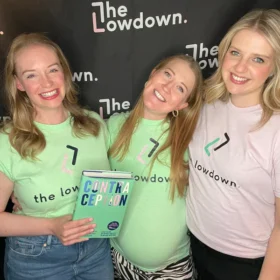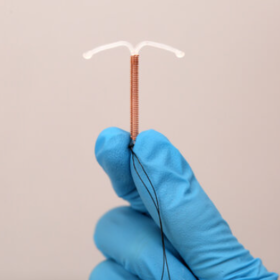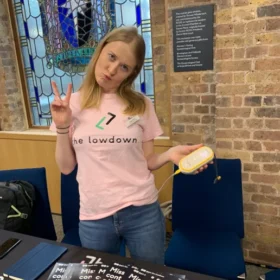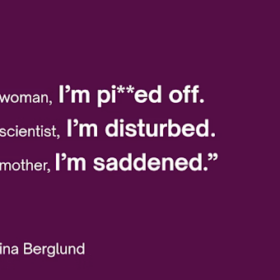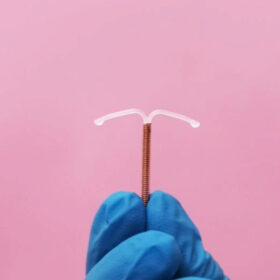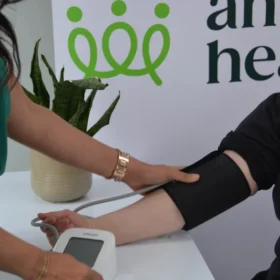
The Lowdown’s February 2025 Newsletter
Hi everyone, Alice from The Lowdown here 👋
Last week, an organisation called the CMA (Competitions and Markets Authority) released their long awaited report on the state of powdered infant formula in the UK. The report highlighted the huge guilt and shame some parents feel about formula feeding, particularly when breastfeeding has not worked out, and the lack of proactive information about formula feeding from the NHS despite the fact that most families will need to or choose to use it.
I’ve been wanting to do something about this space for some time, and so I am really excited to announce that today The Lowdown are launching a survey to gather experiences from any mums on their experiences of feeding their child. We want to understand how current NHS policies have impacted your infant feeding experience, and if there is any room for improvement in the timely delivery of info and support – and we’ll be taking your responses to MPs. Read on for more details or jump to the survey now to share your experience.
I’m also excited to say this month’s newsy is sponsored by Clue, who’ve just launched their Clue Tracking mode feature. Read on for more deets👇

Track your cycle without a period using Clue🩸
Not everyone experiences menstrual bleeding, but did you know you can track your cyclical changes without tracking your period? With the Clue app, you can now start a new ‘cycle’ without logging bleeds. Instead, you can track things like mood changes, cravings, pain and more.
Who might use this feature? It’s perfect for those of us using contraception that stops bleeding but may allow ovulation (hello hormonal coil ), those of us that have had a hysterectomy, are going through menopause or using HRT, or transgender people who don’t bleed.
Cycle tracking isn’t just about monitoring your period – it helps you understand your body’s patterns and manage health conditions or treatment effects. Over 12,000 Clue members have already switched to the new mode, with ‘Feelings’ and ‘Cramps’ being the most tracked.
Check the link below to learn how you can be among the first to try Clue Tracking without a period and help shape the future of cyclical tracking.

Share your experiences in our infant feeding survey 🍼
As a new mum and general loudmouth in women’s health, this is a topic I’m deeply passionate about. I’ve lost count of the number of women who’ve told me they felt ashamed for struggling with breastfeeding – or for not wanting to do it at all. I’ve seen and experienced firsthand how exclusive breastfeeding is preached to us as if it’s a panacea for world peace.
Yes, there are clinically evidenced benefits to breastfeeding. But there are also real benefits to mothers and parents not feeling like complete crap if they can’t or don’t want to do it – like being able to share feeding with their partner to get more sleep, having more flexibility, and not feeling stressed that their child’s entire health and future depends on this one decision.
I think that the whole way the NHS talks to mothers and parents about feeding their children needs to change. But I would love to hear from you – what’s been your experience?
If you’ve had a child on the NHS, please take five minutes to complete our survey. We’re working with a charity called Feed to gather insights and present them to the UK government. Politicians are required to respond to the CMA’s recommendations in the next few months – so the time to share and act is now!

A new study on hormonal contraception links combined methods to a very small increase in strokes and heart attacks
You may have seen reports in the news about this study that was published a few weeks ago. My instant response to any new study is to ask our Medical Director Dr Mel ‘What does it mean Mel?’. Dr Mel told me…
- This was a decent bit of research that studied over two million Danish women. It indicated that certain hormonal contraceptives are associated with a slight increase in the risk of ischaemic stroke and heart attack (so those that are caused by a blood clot in the arteries supplying the brain and muscle of the heart)
- Combined contraceptives (combined pill, patch and vaginal ring) were linked to a twofold or above increase, whereas progestogen-only contraceptives (mini pill, injection, implant) showed little to no risk with the hormonal coil (IUS) showing no increased risk.
- This isn’t new news – some existing studies suggested this increased risk, but they were old and inconsistent studies.
- We shouldn’t panic because the actual risk of reproductive aged women like us having a stroke or heart attack is already very low, and the risk from hormonal contraception is, still very low. E.g. Using the combined pill translates to one additional ischaemic stroke per 4,760 women per year and one additional heart attack per 10,000 women per year.
The lowdown: If you have existing cardiovascular risk factors (like high blood pressure, obesity, smoking, a history of blood clots, migraines with aura, or a family history of stroke or heart disease) you may face a higher absolute risk when using combined hormonal contraceptives. So discuss with your doctor whether you should opt for a contraceptive method that does not contain oestrogen or a non-hormonal method.
Thank you Mel 🙌
In the news…📰🌍
💵 I’d always wondered why I was due a pay rise… Some depressing research has shown that women with endometriosis earn less. By studying anonymised official medical and payroll data of more than 55,000 women, a decrease in monthly earnings was found among those aged between 25 and 54, after they received a diagnosis of endometriosis in an NHS hospital.
⚽ For any athletes out there (or people with dodgy knees) an expert clarified the link between injuries and the menstrual cycle in elite female footballers. A study from the Women’s Football League in 2024 showed that athletes were 6 times more likely to have a muscle injury in the days leading up to their period. However, despite female athletes having 2.2 times more ACL injuries than males, these ligament injuries are not related to hormonal factors.
🧪 But in better news, the FDA has approved Journavx, a brand new non-opioid type of pain medication for adults with moderate to severe short-term pain. This is the first drug to be approved in a brand new class of painkiller. It works by blocking pain signals before they reach the brain, and clinical trials showed significant pain reduction compared to placebo, and has been trialled in patients we have undergone abdominal surgery. We wonder if in the future this could be a great pain relief option for endometriosis, adenomyosis and fibroid sufferers!
Review of the month
Thank you to this community member for sharing her experience of early menopause with us so openly 💗
Post of the month 💉
Our very own Dr Becky has set the record straight on Instillagel not being an effective option for coil fitting and pain relief ❌
Any healthcare professionals reading this, please share!
That’s all for this month, as always I love hearing your feedback on anything we write about, so please just hit reply to this email – I’d love to hear from you.
Thanks,

Our new book Contraception: Your essential guide to separating the myths from the medicine is available to pre-order now here
Our medical review process
This article has been medically reviewed for factual and up to date information by a Lowdown doctor.









